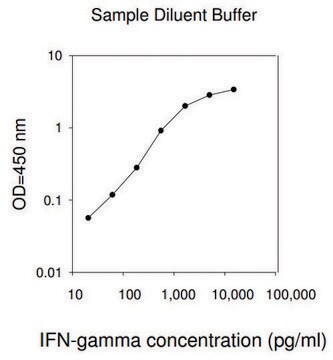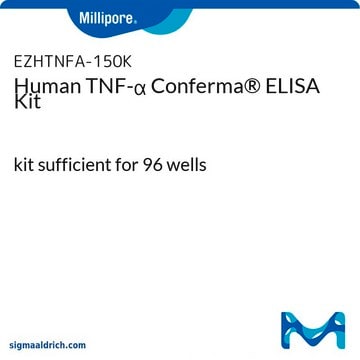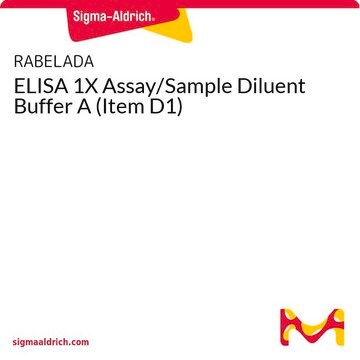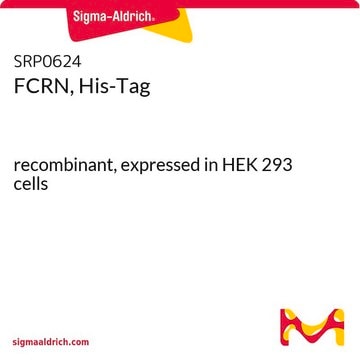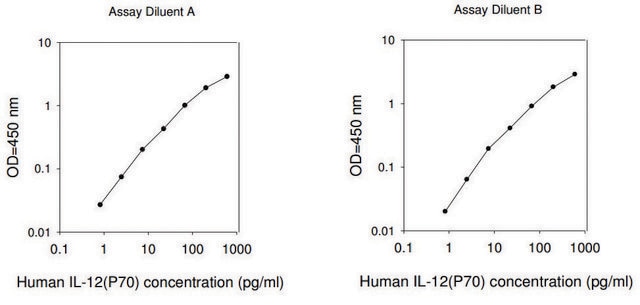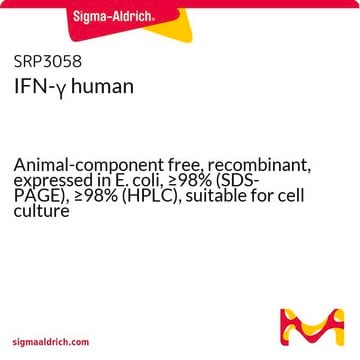RAB0222
Human IFN γ ELISA Kit
for serum, plasma, cell culture supernatant and urine
Synonyme(s) :
IFN-gamma, Interferon gamma
About This Item
Produits recommandés
Espèces réactives
human
Conditionnement
kit of 96 wells (12 strips x 8 wells)
Technique(s)
ELISA: suitable
capture ELISA: suitable
Entrée
sample type plasma
sample type urine
sample type serum
sample type cell culture supernatant(s)
assay range
inter-assay cv: <12%
intra-assay cv: <10%
sensitivity: 15 pg/mL
standard curve range: 20.6-15000 pg/mL
Méthode de détection
colorimetric
Conditions d'expédition
wet ice
Température de stockage
−20°C
Informations sur le gène
human ... IFNG(3458)
Catégories apparentées
Description générale
Immunogène
Application
Please refer to the attached General ELISA KIT Procedure (sandwich, competitive & Indirect ELISA)
Human IFN γ ELISA Kit has been used for determining interferon-gamma levels in cell culture supernatant and macrophages.
Actions biochimiques/physiologiques
Autres remarques
Please type the word sample in the text box provided for lot number.
Composants de kit également disponibles séparément
Mention d'avertissement
Warning
Mentions de danger
Conseils de prudence
Classification des risques
Met. Corr. 1
Code de la classe de stockage
8A - Combustible corrosive hazardous materials
Certificats d'analyse (COA)
Recherchez un Certificats d'analyse (COA) en saisissant le numéro de lot du produit. Les numéros de lot figurent sur l'étiquette du produit après les mots "Lot" ou "Batch".
Déjà en possession de ce produit ?
Retrouvez la documentation relative aux produits que vous avez récemment achetés dans la Bibliothèque de documents.
Les clients ont également consulté
Notre équipe de scientifiques dispose d'une expérience dans tous les secteurs de la recherche, notamment en sciences de la vie, science des matériaux, synthèse chimique, chromatographie, analyse et dans de nombreux autres domaines..
Contacter notre Service technique